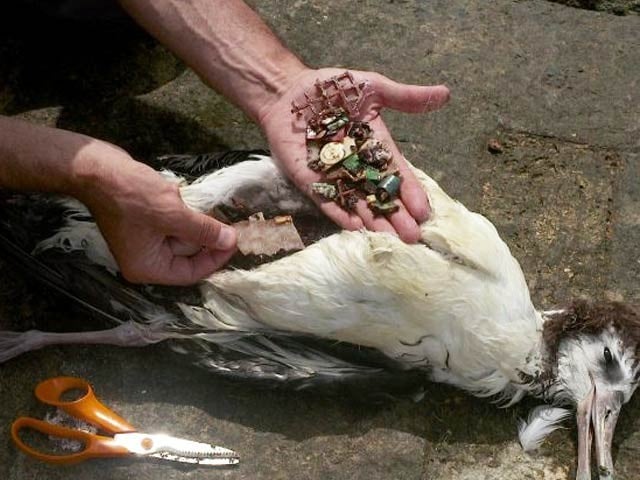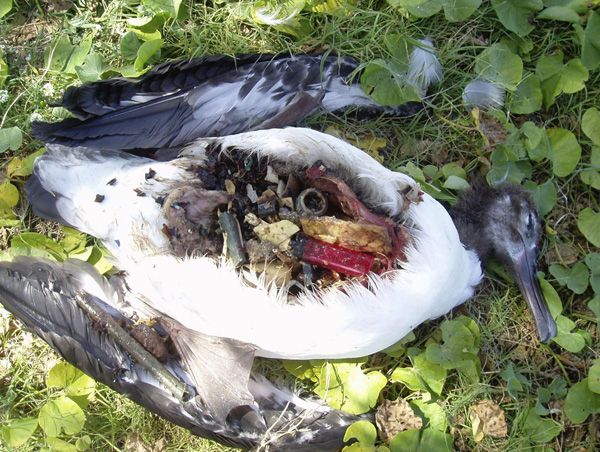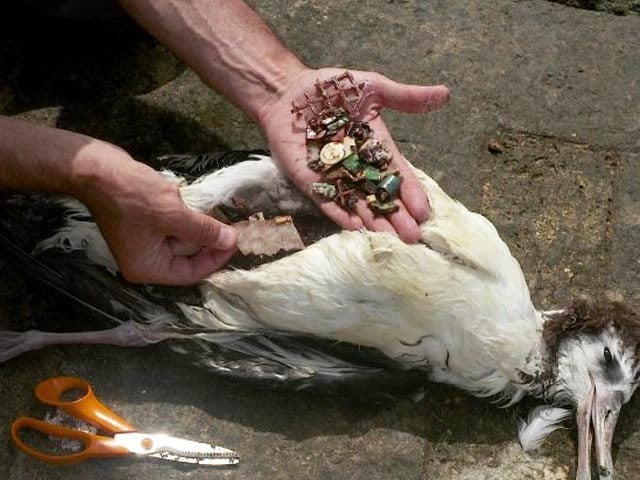
In particular, a large number of water birds are rapidly dying by swallowing plastic pieces. This condition is called ‘plasticosis’. Photo: File
London: Man has started polluting land and water bodies with plastic which is now causing all kinds of damage. Now scientists have for the first time given a name to the death or disease of animals that swallow plastic which is called ‘plasticosis’.
We know that plastic bags are killing everything from turtles to whales. Countless dead waterfowl have been found with their stomachs full of plastic. Even many birds swallow plastic in hunger and its sharp pieces are piercing their bodies, but humans are not willing to give up environmentally friendly plastic despite being the best creatures.

According to experts, more than 1200 species of animals involved in every kind of food cycle are affected by plastic. Although excessive amount of plastic is definitely fatal for them, the effects of small amount of it on animals are being studied and nothing can be said conclusively.
Currently, the first disease has come to light called ‘plasticosis’, in which animals ingesting plastic are suffering from abrasions and sores and are dying sooner or later. In this regard, Austrian experts and experts from the Natural History Museum in London have operated on dozens of dead birds.
He saw that plastic is affecting the stomach, digestive system and even the surrounding flesh and this condition has been named ‘plasticosis’. Even 202 pieces of plastic were found in the stomach of a sea heron. Previously, we had adopted the name silicolysis for those affected by silicon in the coal mine, and the word ‘plastcosis’ was coined from its weight.
(function(d, s, id){
var js, fjs = d.getElementsByTagName(s)[0];
if (d.getElementById(id)) {return;}
js = d.createElement(s); js.id = id;
js.src = “//connect.facebook.net/en_US/sdk.js#xfbml=1&version=v2.3&appId=770767426360150”;
fjs.parentNode.insertBefore(js, fjs);
}(document, ‘script’, ‘facebook-jssdk’));
(function(d, s, id) {
var js, fjs = d.getElementsByTagName(s)[0];
if (d.getElementById(id)) return;
js = d.createElement(s); js.id = id;
js.src = “//connect.facebook.net/en_GB/sdk.js#xfbml=1&version=v2.7”;
fjs.parentNode.insertBefore(js, fjs);
}(document, ‘script’, ‘facebook-jssdk’));



